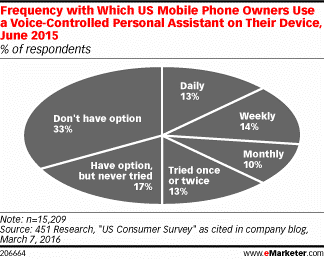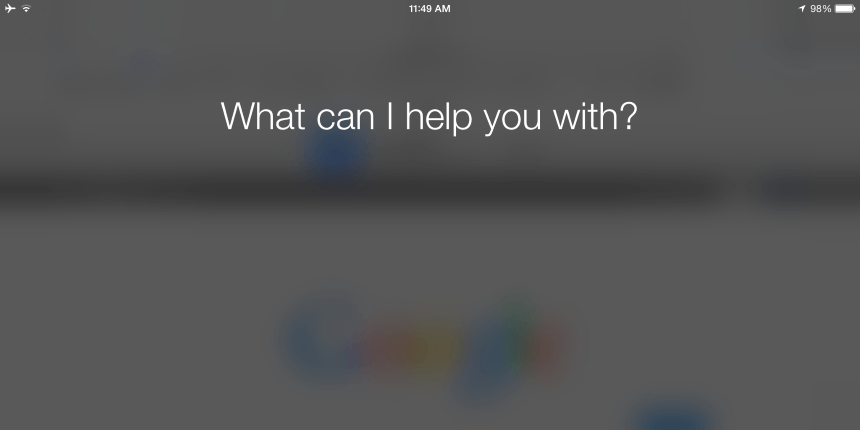By now I am sure that most of you have heard of the digital personal assistant. It is quite possible that you don’t know it by that name. That is right, I am talking about Siri (Apple), Cortana (Microsoft) and Google Now (Android). These are the 3 main digital personal assistant technologies that are used by mobile devices but this technology also includes devices like the Amazon Echo or Alexa. The one thing that these all have in common is that you use your voice to control what the assistant does. This is great for when you are on the go and need to find something but the tech does have its drawbacks as well. Here we will look at what this technology is and how it is used.
What Is A Digital Personal Assistant?
As I mentioned above Apple, Microsoft and Android all have competing digital personal assistants. Siri is probably the one you are most familiar with as it is the most popular in the market. This technology came about when the tech giants realised that people are using their phones to search for everything and wanted to provide an easier way for people to conduct these searches. Siri took off for Apple and the others followed suit developing their own versions of this technology.
Who Is Using It?
This is an interesting question, mainly because it is still a relatively new technology. Siri was the first version and it was released in 2011 with iOS 5 but it didn’t gain full support until iOS 6 was released in May of 2012. This means the technology has been around for 5 years but some of the versions that are used are newer and have come about since Apple launched Siri.

As we can see with this technology being new, it still does have decent market penetration. The chart above shows that 13% of mobile phone owners use their assistant on a daily basis and 37% would be considered regular users using the technology at least on a monthly basis if not more regularly. For a technology that has been around for 5 years, this should only grow in the years to come.
How does it work?
This technology works through voice commands. The general concept being you would speak to your phone vs typing and tapping the screen. It really is similar to the scene in a sci-fi movie where the main character is having a conversation with a computer system, though we aren’t quite there yet. I use this technology frequently and find it is great for quick searches that you need in the moment. As a user, I also notice one downside, and that is you need to use the commands that are programmed into the software. Different people speak in different ways and if this technology is going to really take off it will need to recognise this in some way. I personally only use it for some of its capabilities simply because I can’t get the command right for the others.
Recognising Speech
Right now if you want to use this tech you need to say the exact command that is needed to execute what you want are interested in. (I will use Google Now as the example but this works the same across all assistants)
When you say;
“OK Google, play Led Zeppelin”
The voice software recognises the command and plays a Led Zeppelin song.
However, when you say;
“OK Google, I really feel like some Led Zeppelin right now”
The system just gives you what you want and usually just searches Led Zeppelin on Google, or other search engines depending on the device settings. Even though this statement to a human means “play Led Zeppelin” you will not get the result you want out of the assistant. This is because the music command “play” was not mentioned.
Once they figure out this hurdle and the assistants can recognise how we speak and pick up on the unique voice patterns in each individual’s speech we will see this technology really take off. People right now like it for what it can do but want it to be able to do so much more and I believe someday soon this technology will be able to do just that.
What Does The Future Hold?
I think that this technology is on the path to becoming an integral part of our lives. Like I said I currently use it and it is great for a few basic functions like making phone calls and responding to text messages (mainly done while my hands are full). For this tech to really take off it is going to need some big gains to be made in how the software works. It is going to need to evolve and understand how we actually speak vs. requiring specific command words to execute functions.
The future is closer than you think. Google recently announced Google assistant at their I/O conference. Google assistant is said to be the next generation of the digital personal assistant and is considered to be an upgraded version of their current assistant Google Now.“Think of the assistant, we think of it as a conversational assistant, we want users to have an ongoing two-way dialogue.” Google CEO Sundar Pichai
When you combine the above statement with the announcement of Google Home, a competitor to the Amazon Echo, it is easy to draw the conclusion that the world within our sci-fi movies where we have sophisticated computer systems capable of having full conversations is the end goal. This “end goal” I describe is purely speculation but it does lead to a few interesting questions about what the future could hold and what this means for search marketing.
This new technology does appear to be here to stay. A lot of companies, not just Google, are investing large sums of money developing this software. If it takes off it could potentially lead to the end of search engines and traditional search engine optimisation. I would like to leave you with this thought.
Picture this,
An interaction with technology that is purely done through voice – you talk to your phone, it talks back to answer your request. You ask for the nearest coffee shop, the built-in assistant searches the internet and verbalises the directions to you.
The assistant that you are interacting with above would be searching the internet using a search engine. This assistant would be looking for the answer to your question but how would it choose to answer this. Would the assistant be more inclined to click sponsored or organic search traffic? Does it go to maps? We will have to wait and see how this technology unfolds and how it is adopted by the general public before these questions really get answered, but, there are going to be some really exciting years ahead as our tech catches up to sci-fi predictions.
To keep up with all of the latest digital marketing trends, contact DAC today!




